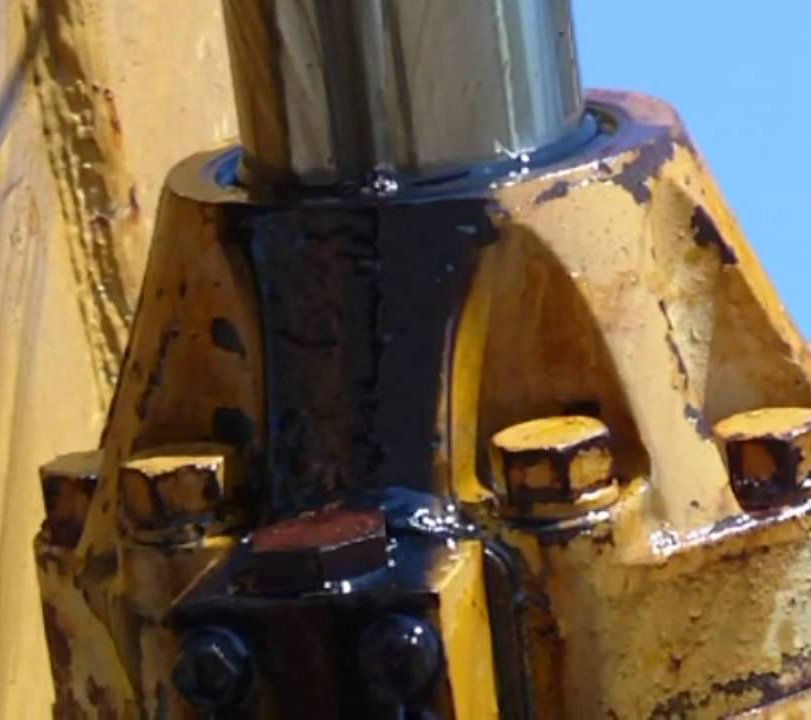Why do hydraulic cylinders start leaking?
Seals play a major role in hydraulic cylinders – they contain the fluid and prevent the leakage of fluid. The seals for a rod sealing system protect the reciprocating motion for the piston rod and gland.
Here are some types of seals you will normally find in a Hydraulic Cylinder:
- Piston seals — keeps oil on the work side of the piston. Prevents oil travel between cylinder sides.
- Rod seals — prevents any leakage from inside the cylinder to the outside.
- Buffer seals — absorb changes in pressure when working with high-load conditions. Normally found in front of the rod seal.
- Wiper seals — prevent any outside contaminants or debris from entering the cylinder system.
- Wear bands — guide the piston and rod. Also prevents metal to metal contact.
Listed below are some common reasons for seal failures:
- Hardening — too much heat being generated from a high-speed application or environmental conditions surrounding the cylinder.
- Wear — excessive wear due to lack of lubrication.
- Contamination — any small pieces of metals or debris entering inside can damage inside components.
- Fracture — resulting from excessive back pressure
- Improper Installation — not using the proper tools to install seals can lead to damage and leaks. Most manufacturers offer installation tips, including surface specs and groove dimensions.


